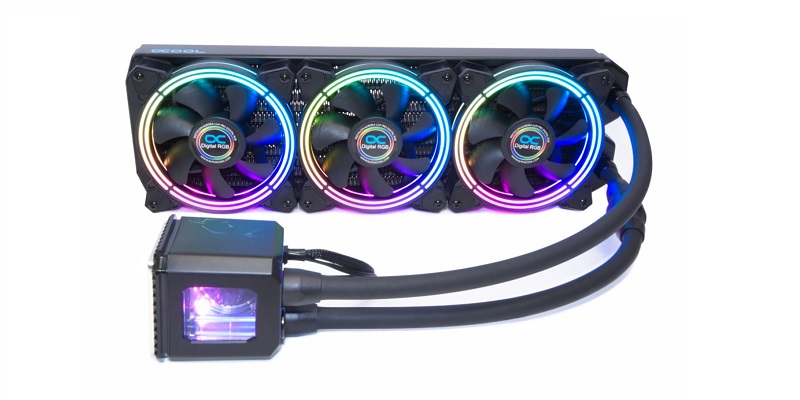
The computer is becoming increasingly powerful. Higher performance and more cores are desirable, but they frequently necessitate increased water cooling system pc. A normal air cooler would suffice for most users, but for a very powerful PC, you’ll need something more. The solution is liquid cooling.
Hotter temperatures, like noise and performance, are part of a feedback cycle. Reduced fan speeds and noise are associated with more capable cooling. Software Applications and GPUs benefit from enough liquid cooling to keep their boost and turbo functionalities working at their peak. To put it another way, improved cooling can lead to improved performance. It’s not something to be taken lightly.
Why Use Water?
To put it another way, water is a better temperature conductor than air. Water can take more heat from the block and, as a result, be cooled when it goes through the radiator. Water cooling systems are normally quieter as a result, but if you’re willing to crank up the fan speeds, they can dissipate a lot more heat, putting them excellent for overclocking. Let’s face it, a high-quality water-cooled system also looks great. Liquid coolers can be as simple as a 120mm all-in-one cooler or as intricate as a custom loop with blocks cooling your graphics cards, CPU, and motherboard which could all be gotten from pc gaming shop
Advantages of Water Cooling Over Air Cooling
Water cooling is a significantly more efficient means of dispersing heat (from the water block) and subsequently getting colder again (after passing through the radiator). Due to the dust accumulation, air is a poor material conductor, and heatsinks lose efficiency with time.
There are also further advantages to using water cooling. One of the most important is aesthetics. A beautifully built water-cooled rig is a sight to behold. If you’ve ever seen a group on exhibit at a trade exhibition, you know they draw a lot of attention. With the correct equipment, a well-designed water-cooled rig can also be nearly silent.
Components of a Water-Cooled Computer
The following components will make up a basic water cooling loop: CPU and/or Graphics Card Reservoir, Radiator, Pump, and Fans, Tubing, Fittings, and Coolant Think about how long you require your tubing to be and whether you choose flexible or rigid tubing and pc gaming shop.